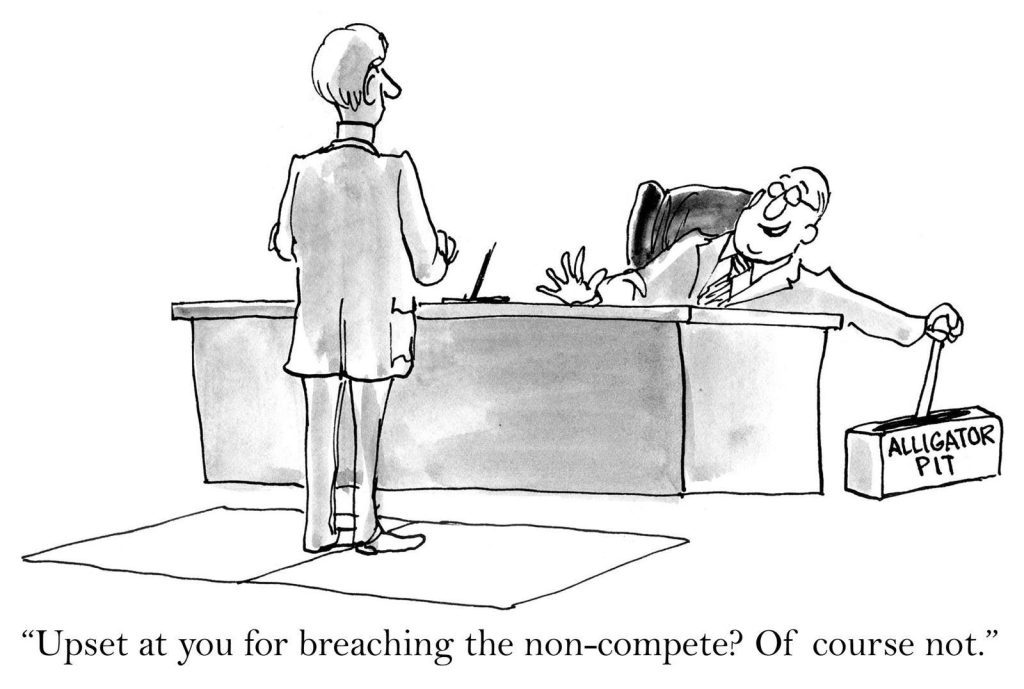That non-compete agreement that you signed when you first started your job seemed completely benign at the time – and your new employer seemed like a prince. Now years have gone by and the bloom’s off the rose. You’re ready to move on to bigger and better things and have accepted a fantastic new position – and your former employer is filing suit for breach of contract. Though there is a movement afoot across the country to eliminate non-compete agreements and make them unenforceable, at this point in time they are considered valid contracts, and that means that you need experienced legal representation that can help you overcome the restrictions imposed by what you signed.
Though non-competes are considered valid, there are a number of defense tactics that can successfully be used to get you out of hot water. Here are five of the most potent arguments that your attorney can use in your defense.
- The employer has already breached the contract.
Every contract has an offer and consideration, and just as you agreed to certain terms when you signed on the dotted line, the same is true for your employers. It is surprisingly common for companies to rush into litigation for breach of a non-compete agreement, only to be confronted with the harsh reality that they failed to comply with a host of the obligations that they committed to in the same agreement.
- Despite their complaint, the company has made their client list public.
One of the most common grievances that employers cite in their non-compete litigation is the confidentiality of their customer lists and identities. Yet it has become common practice for organizations of all kinds to publicize their client lists – along with testimonials from those clients – on their websites and promotional materials. Any company that has broadcast this information, or even has won a contract through a competitive bidding process, will find themselves on the losing end of a confidentiality argument.
- A goodwill argument is hard to prove when no solicitation occurs.
Employers often claim that when a valued or successful employee leaves, they lose customers who follow them to competitor businesses. Though employees are not permitted to notify their clients en masse that they are departing, or to in any way solicit customers to follow them to another supplier, there is nothing to prevent a client from voluntarily discontinuing their business relationship with the employer – or to follow the employee.
- Unclean hands.
The term “unclean hands” quite literally refers to accusing the litigating employer of dirty business practices that forced you to leave their employ. Examples of unclean hands can include discrimination, retaliation for whistleblowing activities or for having taken advantage of federally-guaranteed benefits such as the Family and Medical Leave Act, or other illegal activities.
- Disproving claims of damages.
When an employer files suit against a former employee for violation of a non-compete agreement, they often include a claim of monetary damages. Though this is a common practice, it can be an exceedingly difficult claim to prove, as one of the only forms of evidence that can be offered is a claim of lost business – and a customer can easily argue a number of reasons for their shift to your new employer.
Leaving a company that you have worked for and shown loyalty to is difficult enough, and having your employer sue you for breach of a non-compete agreement makes things even more unpleasant and harrowing. The attorneys at Bochetto & Lentz have extensive experience in successfully defending against these types of claims. Contact us today to put our record of success to work for you.

